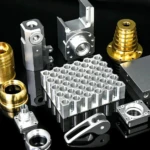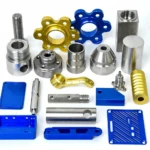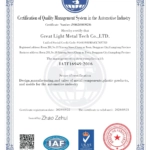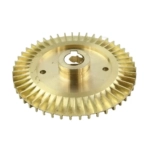Japan is famous for its advanced manufacturing technology and strict quality standards, especially in the design and manufacturing of machining centers, demonstrating outstanding innovation capabilities and precision technology. As a key piece of equipment in modern manufacturing, machining centers are widely used in aerospace, automotive, electronics and other industries. This article will explore the technical advantages of Japanese machining centers and their future application prospects.
1. Technical advantages
1. High precision: Japanese machining centers are known for their high machining precision and can meet micron-level machining requirements. This advantage comes from its advanced manufacturing technology and strict quality control system. Japanese manufacturers have adopted high standards in equipment design, material selection and processing technology, enabling machining centers to excel in manufacturing high-precision parts.
2. Stability and reliability: It also has significant advantages in terms of stability and reliability. By adopting high-rigidity machine tool structure and precise transmission system, vibration and thermal deformation during processing can be effectively reduced, ensuring long-term operation consistency. This stability is the basis for high volume production and high quality standards.
3. Advanced CNC technology: Japan has an advanced position in the development of CNC technology, and many machining centers are equipped with powerful CNC systems. These systems can not only implement complex processing paths, but also have intelligent functions capable of monitoring processing status in real time and making automatic adjustments. This intelligent processing process greatly improves production efficiency and processing precision.
2. Broad application prospects
1. Aerospace Industry: With continuous advancements in aerospace technology, the demand for high-precision parts is increasing. Japanese machining centers have become essential equipment in aerospace manufacturing due to their exceptional processing capabilities. It is capable of processing complex aerospace parts, ensuring high safety and reliability.
2. Automotive manufacturing: The demand for machining centers in the automotive industry continues to grow. Japanese machining centers meet the stringent requirements of automotive manufacturing parts with their high efficiency and high quality. In addition, with the development of electric vehicles and autonomous driving technology, the design of new components poses greater challenges to processing technology, which provides broad space for innovation in machining centers.
3. Electronics industry: In the manufacturing of electronic products, precision processing is the key to ensuring product performance. It can process small and complex electronic components efficiently and precisely, helping the electronics industry improve product quality and production efficiency. With the rise of new technologies such as 5G and the Internet of Things, the demand for high-performance processing equipment in the electronics industry will continue to increase.
3. Summary
Japanese machining centers have demonstrated strong competitiveness in many industries thanks to their high precision, stability and advanced CNC technology. With the continuous development of technology and the changing market demand, Japanese machining centers have broad application prospects in the aerospace, automobile and electronics industries. In the future, as the level of intelligent manufacturing and automation increases, it will continue to promote the development of global processing equipment and provide strong support for manufacturing innovation in various industries.
Daguang focuses on providing solutions such as precision CNC machining services (3-axis, 4-axis, 5-axis machining), CNC milling, and rapid prototyping services.



















